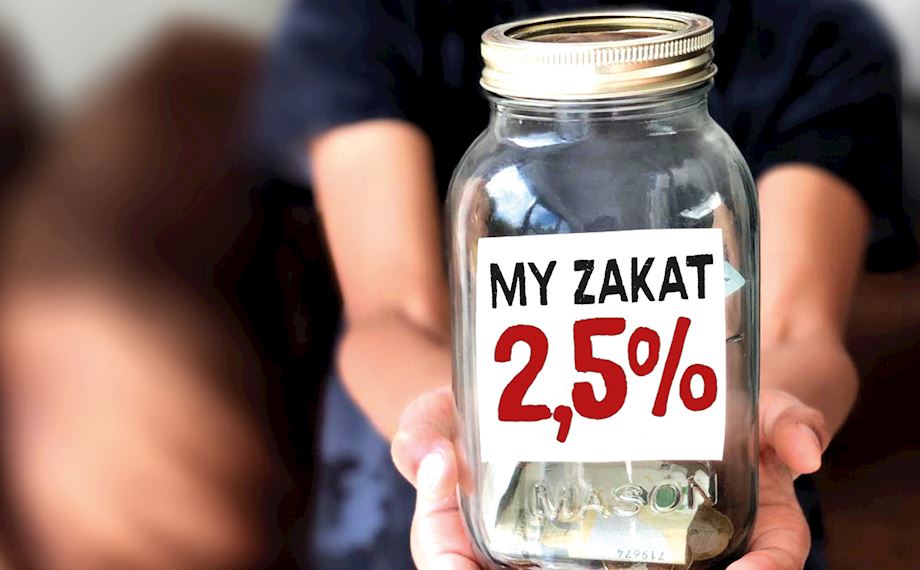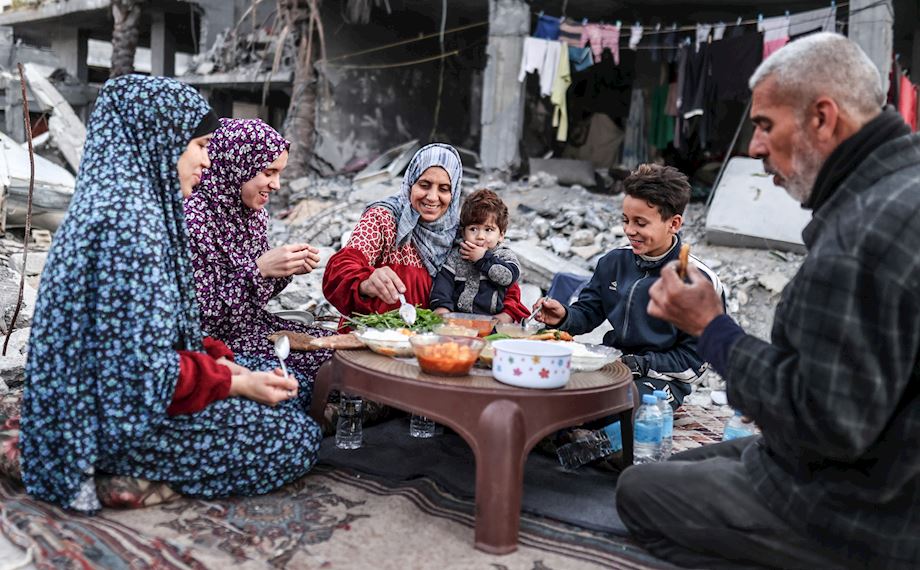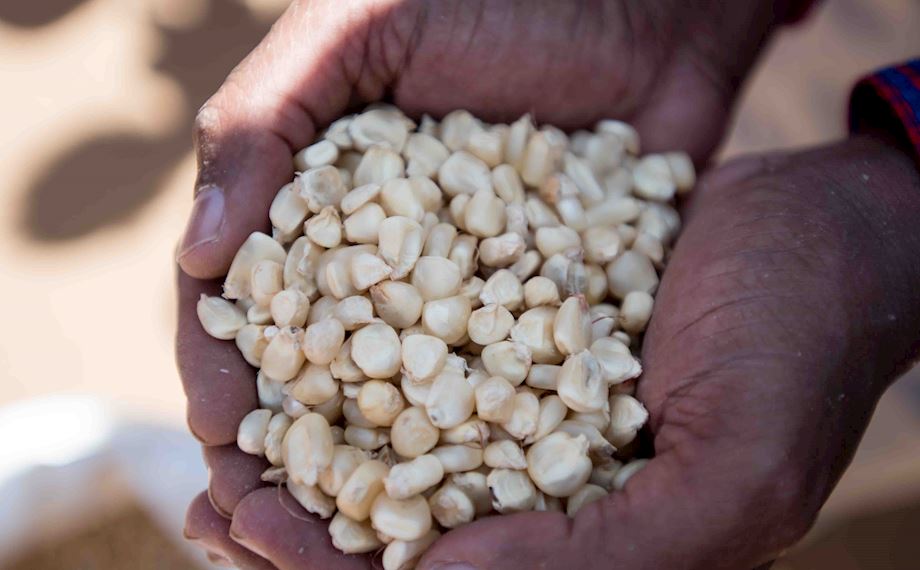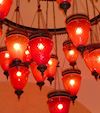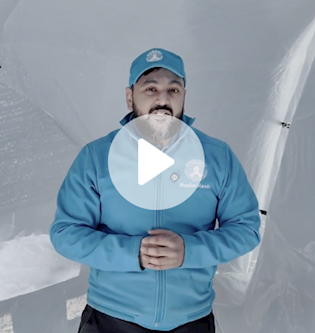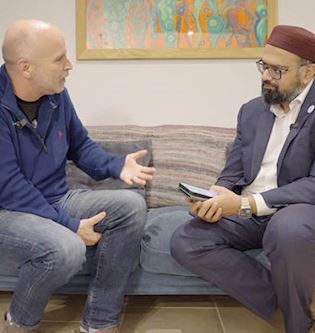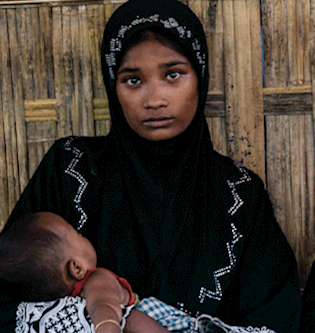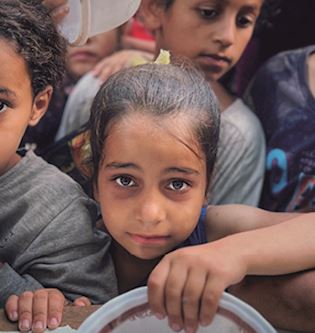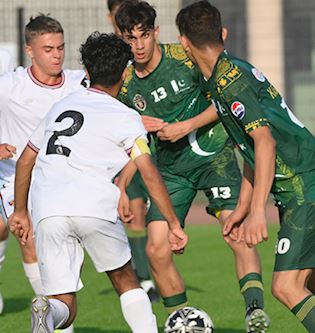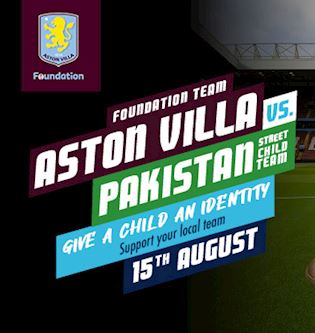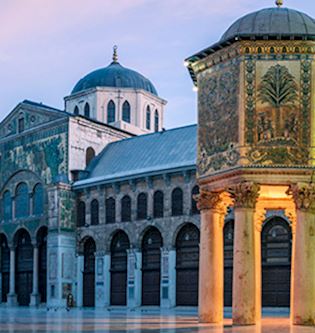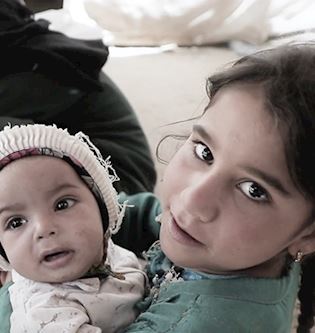How to Pray Eid Salah

When is Eid 2025?
This year, Eid al-Fitr is expected to fall on either Sunday 30th March or Monday 31st March (subject to moonsighting). Eid al-Adha is expected to fall on Friday 6th June (depending on the moonsighting).
On this important day of celebration, as we spend time with our family and friends, let's remember to pray for our brothers and sisters in the Ummah who are living through unimaginable difficulties. We encourage you to give to the Gaza Emergency Fund and our other appeals to support them how we can.
The Eid prayer can be slightly confusing, since we only do it twice a year and it's necessary to refresh our memory! So we've prepared an easy guide to help you perform the Eid prayer. Follow the below steps on both Eid ul-Fitr and Eid al-Adha. (praying Eid Salah Hanafi school of thought).
Don't forget to pay Zakat al-Fitr before Eid Salah or it will be counted as a Sadaqah rather than fulfilling your obligation!
Ibn `Abbas (ra) reported:
'The Messenger of Allah (saw) ordained Zakat al-Fitr [Fitrana] to purify the fasting person from indecent words or actions, and to provide food for the needy. It is accepted as Zakat for the person who gives it before the Eid prayer; but it is a mere Sadaqah for the one who gives it after the prayer.' [Ibn Majah]
Before you start
- Before going to the Eid prayer, it is Sunnah to make ghusl and put on your best clothes. Eid is a celebration, after all!
- It is also Sunnah to recite takbeer after leaving your house as you travel to the Eid prayer. This is: Allahu Akbar, Allahu Akbar. La ilaaha illa-llaah, wa-llaahu Akbar, Allahu Akbar, wa li-llaahil hamd.
- There are no nafl (voluntary) prayers offered before or after the Eid prayer. Ibn Abbas (ra) said, 'The Prophet (saw) went out to the place of prayer on the Day of Fitr and prayed two raka’ah of Eid prayer, not praying before or after them'. [Bukhari]
- Just like with other prayers, remember to make your niyyah (intention) before you start. This intention must be present in the heart. However, if you wish to verbalise it too, you can do so as follows, ‘I intend to pray two raka’ah of the Eid al-Fitr/Eid al-Adha prayer for Allah facing the Ka'bah'.
Learn more Sunnah acts to be performed on Eid al-Fitr.
The first rak'ah
- Now start your prayer by raising your hands up to your earlobes for men, and shoulders for women, while saying the takbeer: Allahu Akbar. Then, place your right hand over your left, just below the naval. Women should place their hands below their chest.
- Recite your opening supplication: SubhanaK-Allahumma wa bihamdiKa, wa tabaarak-asmuKa, wa ta-‘aala jadduKa, wa la ilaaha ghayruK. This means: O Allah, glory and praise are for You, and blessed is Your Name, and exalted is Your Majesty and there is no god but You.
- Now comes the main thing that differentiates the Eid prayer from other prayers! The Imam will now recite multiple takbeers to start the prayer. For each takbeer, raise your hands up to your ears/shoulders and then let them fall to your sides.
- The number of takbeers will vary depending on the Imam. A Hanafi Imam will say takbeer three times. But typically, your Imam will run through the amount of takbeers prior to the start of the prayer, so pay attention!
- Now that the takbeers are over, place your right hand over your left below your chest/below your navel, as you would normally do while praying. Now the Imam will recite Surah al-Fatihah followed by another surah.
- The rest of the rak'ah will be prayed the same as your normal compulsory prayers. If you're a beginner, please see our blog about how to perform Salah. If not, continue reading!
The second rak'ah
- In the second rak'ah, the Imam will recite Surah al-Fatihah followed by another surah.
- After this Qur'an recitation, the Imam will recite multiple takbeers again! Remember, for each takbeer, raise your hands to your ears/shoulders and let them fall to your side. A Hanafi Imam will recite three takbeers, but other Imams will be different, so pay attention.
- When the takbeers are over, go down into a bowing position (ruku).
- The rest of the rak'ah will be the same as your normal compulsory prayers.
- After the prayer, the Imam will address the people in a khutbah (sermon). This can last anywhere from around 10-30 minutes, during which the Imam will address important Islamic issues. It is essential that you listen to the sermon.
After you finish
- One more thing - take a different route home after praying. Both the routes you take will testify that you attended this prayer on the Day of Judgement. Abu Huraira narrates that when the Messenger (saw) would go for Eid (prayer), he would return taking a different path from the one he had used to come. [Ibn Majah]
Further notes
There are just a few more things you need to know for each Eid prayer.
Here are a couple of things to note about Eid al-Fitr Salah:
- It is Sunnah to eat something before the prayer, usually something sweet like dates. 'The Messenger (saw) would not leave for Eid al-Fitr until he ate...' [Ahmad]
- You must pay your Zakat al-Fitr (Fitrana) before the prayer, so the poor can be fed on Eid day. Zakat al-Fitr (£5 per person) is obligatory upon every member of your household, including children and the elderly, and cannot be made up if neglected.
Here are a couple of things to note about Eid al-Adha Salah:
- It is Sunnah to eat something after the prayer. If possible, this should be the meal with your Qurbani meat, but even if you're sacrificing abroad, it's still better not to eat until you've completed Eid al-Adha prayer. '...he (saw) would not eat on Eid al-Adha until he would return and eat from the animal he sacrificed'. [Ahmad]
- We recommend that you order your Qurbani before the prayer, as our global teams will begin sacrificing the animals straight after the Eid prayer. This is because the Prophet (saw) said, 'Whoever slaughtered the sacrifice before offering the Eid prayer, should slaughter another sacrifice in its place; and whoever has not slaughtered their sacrifice yet, should slaughter now' [Bukhari]. As soon as we have sacrificed the animals, we will begin distributing the meat to poor families.
- However, if you forget to order your Qurbani before the Eid prayer, don't worry! You can make a Qurbani order right up until Maghrib time on the third day of Eid (12th Dhul Hijjah), as Muslim Hands has already sacrificed the animals in time for Eid distribution, with the intention that some donors will give their money on the third day.
- You can learn more about the blessed day of Eid al-Adha in our video.
We hope that you found this short guide on the Eid prayer helpful.





